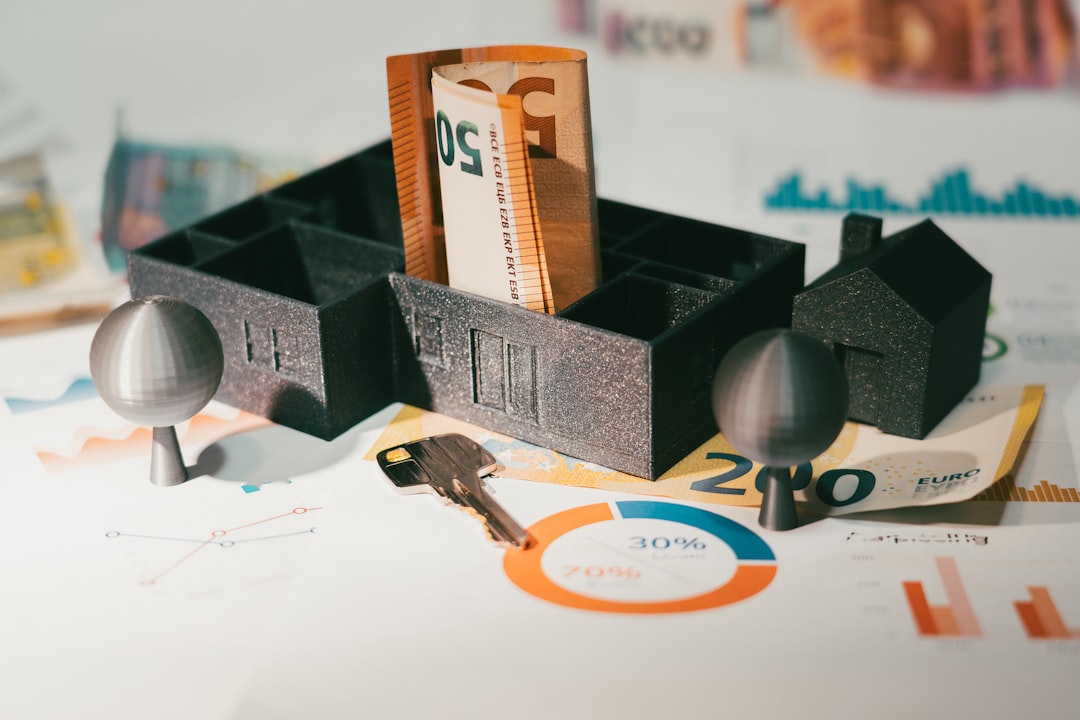Secured consolidation loans offer homeowners a way to manage high-interest debt by combining multiple obligations into a single loan backed by property. While providing lower rates and manageable payments, these loans carry significant risks, including potential property loss through foreclosure upon default. Thorough financial planning, understanding strict terms, and exploring non-collateralized alternatives are crucial before pursuing such loans.
Considering a secured consolidation loan? Using your property as collateral can offer lower interest rates and improved terms, but it comes with risks. This comprehensive guide breaks down the pros and cons of securing loans with your home or land. We explore benefits like consolidated debt and potential savings, while also detailing risks such as foreclosure if you default. Learn about credit score impacts, loan terms, and alternative non-collateralized options to make an informed decision about secured consolidation loans.
- Understanding Secured Consolidation Loans: A Comprehensive Overview
- Benefits of Using Your Property as Collateral
- Risks Associated with Property Collateralized Loans
- Credit Score Impact: Securing and Repayment
- Loan Terms and Conditions: What to Expect
- Alternative Options: Exploring Non-Collateralized Consolidation Loans
Understanding Secured Consolidation Loans: A Comprehensive Overview

Secured consolidation loans are a financial tool designed to simplify debt management by combining multiple outstanding debts into one single loan. This process involves using an individual’s property, such as their home or land, as collateral for the new loan. The primary advantage lies in potentially lower interest rates and more manageable monthly payments compared to separate debt obligations. By bundling debts, borrowers can reduce the administrative burden of managing multiple lenders and enjoy better predictability in their financial plans.
These loans are ideal for homeowners or property owners looking to consolidate high-interest debt, such as credit card balances or personal loans, into a single, more affordable payment. However, it’s crucial to understand that this comes with a significant risk—if the borrower defaults on the loan, they could stand to lose their property. Therefore, thorough financial planning and a solid understanding of one’s repayment capabilities are essential before pursuing a secured consolidation loan.
Benefits of Using Your Property as Collateral

When considering a secured consolidation loan, using your property as collateral offers several advantages. One of the primary benefits is the potential for lower interest rates compared to unsecured loans. This is because lenders view property as a tangible asset that provides security, allowing them to offer more competitive terms. Additionally, these loans often come with longer repayment periods, providing borrowers with more flexibility and potentially saving on monthly payments.
Another advantage is the ability to consolidate various debts into one manageable loan. By combining multiple high-interest debts, such as credit cards and personal loans, into a single secured consolidation loan, borrowers can simplify their financial obligations. This consolidation streamlines repayment, making it easier to stay on track and potentially reduce overall debt over time.
Risks Associated with Property Collateralized Loans

When considering a secured consolidation loan, it’s crucial to be aware of the risks tied to using your property as collateral. These loans, while offering potential benefits like lower interest rates and longer repayment terms, come with significant drawbacks. One of the primary concerns is the risk of foreclosure if you fail to repay the loan as agreed. If you default on payments, lenders have the legal right to seize and sell your property to recover the outstanding debt. This can lead to financial ruin, leaving you homeless and with a damaged credit score.
Additionally, secured consolidation loans often come with stringent terms and conditions that can be difficult to navigate. Lenders may require strict adherence to repayment schedules, and any deviation could result in penalties or additional fees. Moreover, if property values fluctuate during the loan term, there’s a risk of your home losing value, making it harder to refinance or sell in the future should an emergency arise.
Credit Score Impact: Securing and Repayment

Securing a consolidation loan using your property as collateral can have a significant impact on your credit score, especially in the short term. When you apply for such a loan, lenders will perform a hard inquiry on your credit report, which can temporarily lower your score. This is because it indicates to creditors that you are actively seeking new debt, which might raise red flags. However, if managed responsibly, this type of loan can positively influence your creditworthiness over time.
Repaying the secured consolidation loan as agreed upon can actually enhance your credit score. Timely payments demonstrate a strong repayment history, which is a crucial factor in calculating your creditworthiness. Moreover, consolidating debt through a secured loan allows you to potentially reduce interest rates compared to unsecured loans, thus saving money and making future repayments more manageable. This responsible management of debt can reflect favorably on your credit report over the long term.
Loan Terms and Conditions: What to Expect

When considering a secured consolidation loan, understanding the terms and conditions is paramount. These loans leverage your property as collateral, which means lenders have legal rights to seize and sell your asset if you default on payments. Interest rates for such loans tend to be lower due to the reduced risk for the lender, but late fees and prepayment penalties can add up.
Loan terms typically range from 10 to 30 years, offering repayment flexibility but extending the overall cost of borrowing. Lenders will conduct thorough property appraisals to determine the value of your asset, which is used to calculate the maximum loan amount available. It’s crucial to thoroughly review all documents and ask about any potential fees or hidden costs before signing on the dotted line.
Alternative Options: Exploring Non-Collateralized Consolidation Loans

If you’re considering a secured consolidation loan, it’s wise to explore alternatives first. Non-collateralized consolidation loans offer a path with fewer risks. These loans are based solely on your creditworthiness and don’t require you to put up any assets as collateral. This means if you default on the loan, you won’t risk losing your home or other valuable possessions. However, non-collateralized loans typically come with higher interest rates due to the increased risk for lenders.
Despite this trade-off, these loans can still provide significant financial relief by simplifying repayment and potentially lowering monthly payments. They’re a viable option for those who may not have assets suitable for collateral or prefer to avoid the added stress of securing a loan with their property.
Secured consolidation loans offer a powerful tool for managing debt, especially with the potential benefits of lowered interest rates and fixed monthly payments. However, it’s crucial to weigh these advantages against the significant risks involved, such as the possibility of property loss in case of default. Understanding the terms and conditions, including loan terms and credit score impact, is essential before making a decision. While secured loans provide an option for those with substantial equity, exploring non-collateralized consolidation loans can also offer viable alternatives without putting your property at risk. Ultimately, choosing the right debt management strategy depends on individual circumstances and a thorough assessment of both pros and cons.
